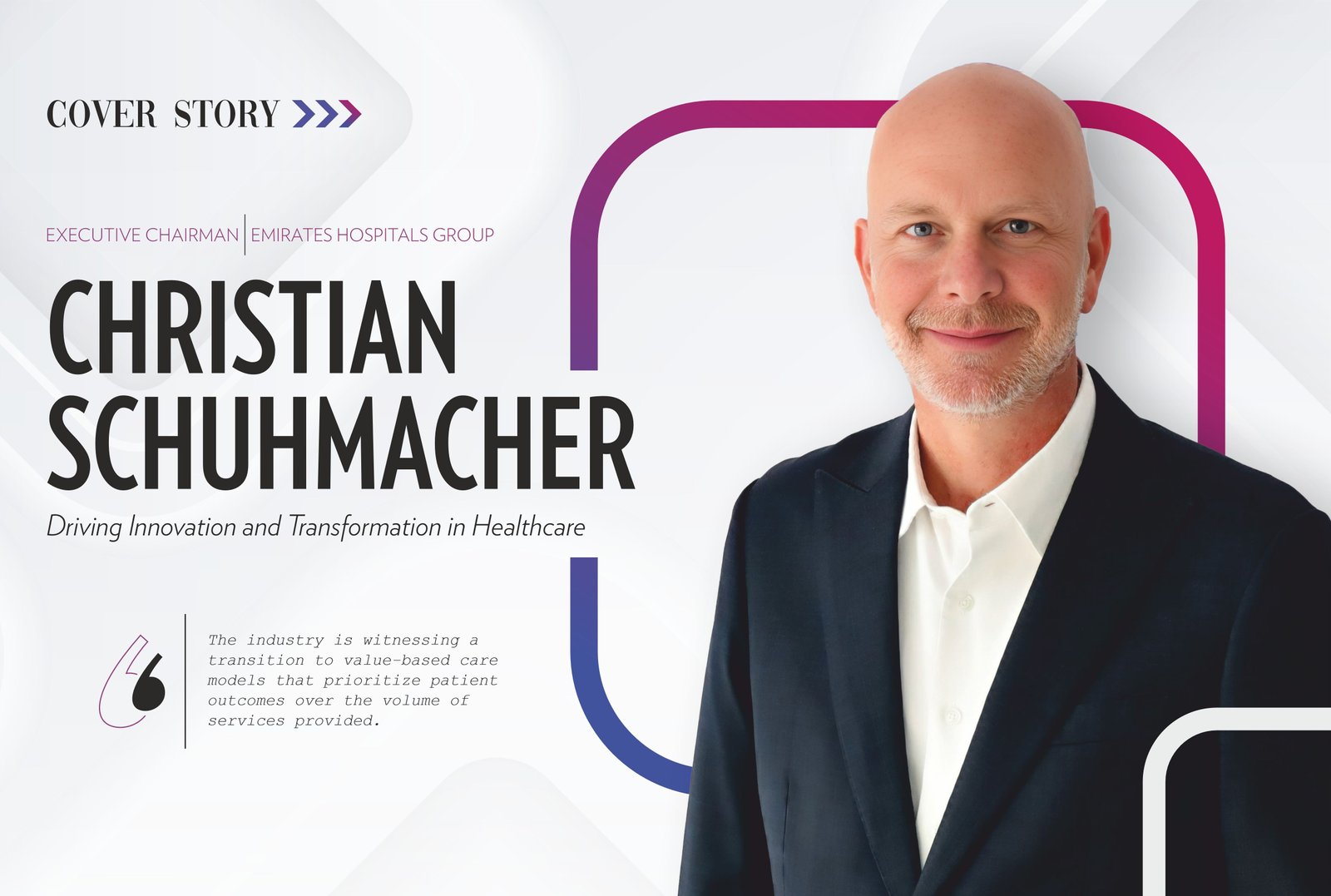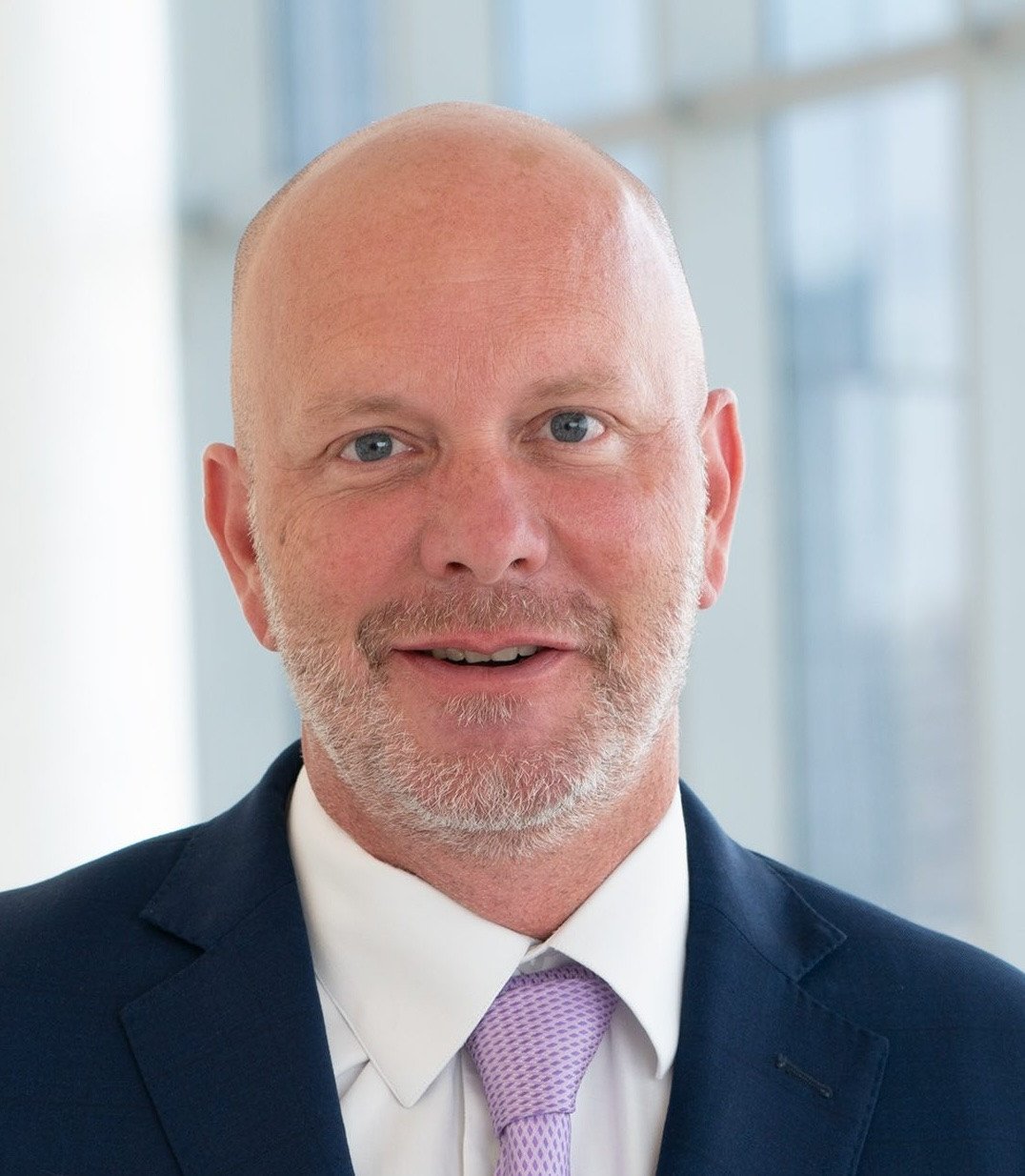
The healthcare sector plays a fundamental role in shaping individual well-being and community health. As medical advancements progress, the demand for more efficient, personalized, and accessible care continues to rise. Simultaneously, challenges such as the growing prevalence of chronic diseases and the shifting expectations of patients and healthcare providers are pushing the industry towards significant transformation. Key innovations, including the integration of artificial intelligence, telemedicine, and precision medicine, are driving this change, allowing for more proactive and targeted care. Additionally, the shift to value-based care, where patient outcomes take precedence over the volume of services, is redefined as a core focus across the industry.
Christian Schuhmacher, the Executive Chairman, brings a wealth of experience in directing the complications of healthcare transformation. With a deep understanding of the intersection between technology, patient care, and operational efficiency, he has consistently sought to drive innovation within the sector. His leadership approach focuses on enhancing healthcare delivery through advanced technological integration and ensuring that organizations are adaptable in meeting evolving patient expectations and regulatory demands.
Emirates Hospitals Group, stands at the forefront of these advancements, committed to delivering patient-centered care while embracing cutting-edge technologies. The organization’s efforts to integrate technology early and prioritize value-based care have positioned it as a leader in healthcare innovation, improving both patient outcomes and operational efficiency in the region. By addressing the growing needs of the healthcare sector, Emirates Hospitals Group remains dedicated to shaping a sustainable future for healthcare.
Transforming Healthcare with Innovation and Value-Based Care
Christian foresees a period of transformative progress in healthcare over the next five to ten years, influenced by technological advancements, innovative business models, and evolving patient expectations. The increasing prevalence of lifestyle-related diseases such as diabetes, cardiovascular conditions, and obesity continues to exert pressure on healthcare systems globally. Concurrently, patients are seeking more personalized, accessible, and efficient care, redefining standards across the industry.
Technological advancements are central to this transformation. Innovations like artificial intelligence, remote monitoring, telemedicine, and personalized precision medicine are already contributing to significant progress in healthcare delivery. Their further development is expected to enhance proactive and targeted interventions, improving patient outcomes and alleviating the growing burden of chronic and lifestyle-related diseases.
The industry is also witnessing a transition to value-based care models that prioritize patient outcomes over the volume of services provided. This shift emphasizes transparency, accountability, and measurable improvements in health outcomes. It represents a fundamental change in care delivery and financing, better aligning with the expectations of patients and healthcare providers.
Emirates Hospitals Group is strategically positioned to excel in this changing environment. By adopting advanced technologies early and seamlessly integrating them into its operations, the Group strives to deliver innovative, efficient, and patient-centered care. The move toward value-based care further underscores the organization’s dedication to exceptional patient experiences and the effective management of lifestyle-related conditions.
Through the integration of cutting-edge technologies, a strong emphasis on preventive care, and a commitment to adapting to shifting patient needs, Emirates Hospitals Group is poised to shape the future of healthcare. Under Christian’s guidance, the organization is driving meaningful progress in the region, setting benchmarks for excellence in the healthcare sector.
Strategic Approaches to Building and Transforming Hospitals
Christian highlights the distinct approaches required for building greenfield hospitals versus transforming established healthcare providers. Each strategy comes with unique considerations and demands.
Greenfield hospital projects offer the advantage of starting from scratch, enabling the design of state-of-the-art facilities tailored for streamlined processes, optimized patient flow, and fully integrated systems. These projects allow for assembling a carefully selected team from the outset and provide the flexibility to adapt strategies in response to market shifts or significant global events, such as the COVID-19 pandemic.
In contrast, transforming an established provider involves addressing existing operations and legacy processes that may no longer meet current demands. These systems often bring inefficiencies that require careful optimization to align with modern healthcare standards. The most significant challenge in this context is driving cultural change. Achieving this requires strong leadership capable of setting a clear vision, rebuilding trust, and inspiring the workforce to embrace new ways of thinking and working.
Success in both scenarios is achieved by aligning strategic goals with operational excellence. This includes fostering a culture that prioritizes patient care, adaptability, and innovation, ensuring the organization is well-prepared to meet present and future healthcare demands.
Strategic Insights for Sustainable Healthcare Investments
Christian underscores the importance of a comprehensive approach when evaluating healthcare projects and investments, particularly in regions with unique market conditions. Success and long-term sustainability are ensured by addressing several critical factors.
A deep understanding of market demand and demographics is fundamental. This involves identifying specific healthcare needs, such as long-term care for aging populations or specialized facilities for chronic diseases. Careful assessment of the regulatory and political landscape is equally important to navigate licensing requirements, ensure compliance, and evaluate policy stability.
Economic viability remains a central focus, with an emphasis on sustainable business models that strike a balance between profitability and the delivery of high-quality care. Partnerships with local stakeholders, including governments and healthcare providers, are pivotal for understanding cultural nuances and navigating regulatory frameworks effectively. Integrating technological innovation, such as telemedicine, artificial intelligence, and robotics, ensures scalability and improved efficiency in care delivery.
Social and environmental impacts are also prioritized, with efforts to improve healthcare accessibility and address health disparities in underserved regions. A skilled management team and an engaged workforce are critical for adapting to local market conditions and overcoming operational challenges. Additionally, robust risk mitigation strategies are implemented to ensure resilience against uncertainties.
By balancing financial sustainability with meaningful societal contributions, the focus remains on advancing global healthcare standards while addressing the distinct needs of specific regions. This holistic approach drives impactful and enduring healthcare solutions.
Restructuring for Excellence
Christian highlights the key strategies employed during the organization’s restructuring process. A robust governance framework serves as the foundation, supported by a professional board that brings diverse expertise in healthcare operations, finance, technology, and patient advocacy. This diversity ensures well-rounded decision-making and aligns the organization with global best practices. Committees such as the Patient Safety and Experience Committee play a critical role in enhancing care quality, promoting transparency, and fostering a proactive safety culture.
Operational excellence is achieved through the application of lean management principles. This involves optimizing the patient pathway from admission to discharge by addressing inefficiencies such as diagnostic bottlenecks and discharge delays. Leveraging real-time data, workflows are streamlined, resource allocation is enhanced, and workforce flexibility is improved to meet patient needs more effectively.
Patient-centricity is a cornerstone of this transformation. Scheduling systems are redesigned to minimize wait times, multidisciplinary care teams are introduced to provide coordinated treatment, and feedback loops are integrated to continuously refine services based on patient input. This comprehensive approach not only enhances operational efficiency but also ensures measurable improvements in the quality of patient care, setting a new standard for excellence in healthcare delivery.

Balancing Efficiency and Quality for Enhanced Patient Outcomes and Trust
Christian emphasizes that patient satisfaction and experience are pivotal in a competitive healthcare sector. Under his leadership, Emirates Hospitals Group strives to balance operational efficiency with high-quality care by creating seamless, technology-integrated patient journeys. This approach not only optimizes efficiency but also enhances the overall care experience.
Strong clinical governance and adherence to evidence-based care practices form the foundation of this strategy, resulting in improved patient outcomes. By fostering trust with insurers, the group has successfully reduced rejection rates and strengthened commercial partnerships.
Through a commitment to quality and patient-centered processes, Emirates Hospitals Group achieves a synergy between clinical excellence and operational success, meeting the demands of a growing healthcare sector with precision and care.
Building Trust and Collaboration in Healthcare Restructuring
In leading the restructuring of a hospital group, Christian focuses on establishing a clear, shared vision that benefits all stakeholders, especially patients. Open communication plays a central role, with regular updates and feedback ensuring that all team members feel heard and included.
Cross-functional collaboration is integral to the strategy, with integrated teams working on various aspects of the restructuring. This approach breaks down silos and instills a sense of shared responsibility for outcomes. Transparent leadership builds trust by openly addressing challenges and potential impacts while consistently reinforcing the vision, creating an environment where team members are motivated to contribute. This collaborative and inclusive approach aligns diverse teams and ensures the success of the restructuring goals.
Sustainable Healthcare Growth through Digital and Strategic Partnerships
Sustainable growth in healthcare requires addressing key challenges such as rising costs, especially related to hiring and retaining qualified medical professionals, and the financial pressures these create. The highly regulated nature of the healthcare industry also adds operational complexity and cost, as compliance with regulations is necessary for ensuring safety and quality.
To overcome these challenges, organizations must prioritize digital transformation by integrating technology throughout the business and patient journey to streamline operations and reduce inefficiencies. Leveraging data to optimize resource allocation and enhance decision-making is crucial in achieving operational efficiency. Forming strong partnerships with governments, private entities, and technology providers is also essential to sharing risks and enhancing capabilities. Strategic planning and operational efficiency are central to ensuring that growth is financially viable while maintaining a commitment to delivering high-quality care.
Driving Strategic Solutions to Overcome Healthcare Challenges
In his advisory role, Christian addresses various challenges commonly encountered in healthcare organizations, such as resistance to change, inefficient use of data, financial sustainability issues, talent management, and regulatory complexities. Resistance to change is often rooted in entrenched processes and skepticism, which Christian manages through transparent communication, phased implementation, and structured change management strategies.
Many organizations struggle with utilizing data effectively due to fragmented systems, so he prioritizes data integration, advanced analytics, and staff training to enable evidence-based decision-making. Financial sustainability is a key focus, especially in markets with shifting reimbursement models. Christian works to optimize business models, make strategic technology investments, and explore public-private partnerships to balance cost management with high-quality care.
Talent management is also crucial, and Christian emphasizes attracting, retaining, and developing skilled professionals by improving work environments and offering leadership development opportunities. When it comes to regulatory complexities, he advocates for proactive compliance strategies and the use of digital tools to streamline processes. By tailoring strategic, operational, and technological solutions to each organization’s unique needs, Christian drives sustainable transformation and creates value for both institutions and patients.
Driving Innovation and Compassion in Healthcare for a Lasting Impact
Christian is motivated by the opportunity to create a lasting impact in the healthcare industry, which plays a crucial role in the well-being of individuals and communities. Healthcare’s direct influence on people’s lives makes it a meaningful sector to contribute to, especially given advancements in life expectancy, technology, and shifting patient and workforce expectations.
He is inspired by the potential to drive innovation and foster a culture of continuous improvement. His focus is on ensuring that healthcare systems adapt to these changes while prioritizing compassion and excellence. By empowering healthcare professionals and embracing technology, Christian aims to shape a future where healthcare is more accessible, efficient, and impactful for generations to come.